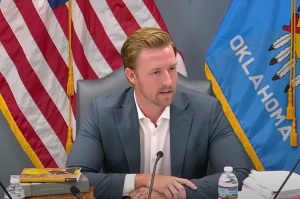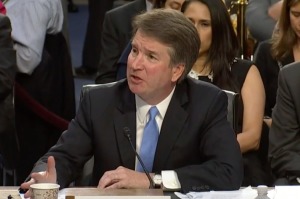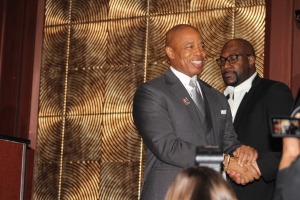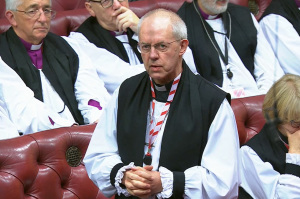Analysis: Are Common Core Opponents Just a Bunch of Crazies?
Common Core Supporters Are Ignoring the Critics Arguments
To make a strong argument, address the strongest arguments of your opponents, any debate coach will tell you. Supporters of the Common Core, however, are doing just the opposite. They ignore the opponent's strongest arguments while trying to create the impression they are just a bunch of crazies.
Anyone who disagrees with them must be suffering from a mental deficit, supporters of the Common Core State Standards Initiative often suggest.
- Paul Reville, an education professor at Harvard and former Massachusetts Secretary of Education, claimed Common Core opponents are a "tiny minority" of "fringe voices" who fail to understand that "the children belong to all of us."
- Education Secretary Arne Duncan claimed the critics are "white suburban moms" opposed to progress in education. He later apologized, but in his apology accused the critics of being opposed to high standards for education.
- Former Florida Governor Jeb Bush said they are defenders of low standards who are "comfortable with mediocrity."
- Conservative New York Times columnist David Brooks claimed those who oppose Common Core are part of an "ideological circus" with "hysterical claims and fevered accusations" from "the market-share-obsessed talk-radio crowd."
- A 40-page report released this month by the Southern Poverty Law Center depicts the critics as "far-right" propagandists who believe that K-12 education should no longer be free, universal and compulsory.
- And, in a rather odd op-ed, conservative Washington Post columnist Michael Gerson begins by praising conservatives who are willing to "assemble unexpected alliances" then condemns the left-right alliance opposing Common Core as a "mediocrity caucus."
Common Core critics were also misrepresented in a poll released Monday by Republican pollster John McLaughlin on behalf of Common Core supporters. The poll was meant to find out where Republican primary voters stand on the Common Core.
The poll first found that a significant minority, 40 percent, of Republican primary voters do not know what the Common Core is. This is unsurprising because other polls have found similar results.
The poll then describes two different positions on the Common Core and asks respondents which they prefer. The two positions are described this way: "Candidate A, who says that Common Core State Standards are supported by 75% of teachers and will help students learn more and be better prepared when they graduate high school." Or, "Candidate B, who says that Common Core State Standards were developed in secret by the Obama administration and are being imposed on kids without input from parents and local school boards."
(Note: The Common Core was developed in secret by the National Governor's Association and the Council of Chief State School Officers, not President Barack Obama. States were encouraged to adopt the standards through Race to the Top, an Obama administration program. Common Core opponents usually make this clear.)
So in the poll, the respondents, many of whom do not know what Common Core is, are asked to choose between a very positive sounding pro-Common Core message and an anti-Common Core message that is made to sound like a nutty conspiracy theorist. The poll, like many Common Core supporters, compares the strongest pro-Common Core argument with a relatively weak anti-Common Core argument. In a Washington Examiner op-ed, McLaughlin described this question wording as "neutral."
McLaughlin believes you should be surprised that a majority of Republican primary voters chose "candidate A" when the two sides are presented that way. "Amazingly, Candidate A wins comfortably by a 48 percent to 36 percent margin," he announced .
In a Monday press call, McLaughlin demonstrated that he has little understanding of the main arguments of Common Core opponents, and little understanding of Common Core itself.
After presenting the results of his survey, The Christian Post asked if the survey had any questions that gauged the reaction of voters when they are presented with the actual arguments of Common Core opponents.
"If you listen to [Common Core opponents], they're saying the problem is the standards themselves and that education should not simply be about creating better workers but should be about creating better citizens, and the Common Core ... encourages less focus on the arts, humanities and social sciences. They have a problem with the standards for that reason. Was there anything in the questions, maybe something that you didn't present, that gets at that debate that takes place between opponents and proponents of the Common Core?" CP asked.
McLaughlin answered, "Each state decides what the standards are. That's what is explicitly phrased in the way the questions were laid out there. So you have it exactly right in the questions. And the questions were also put out in a way that there was no information in front of it that was going to bias those answers."
One of the primary goals of the Common Core is to have every state use the same standards, hence the word "common" in its title. States that have adopted the Common Core can add to them, but they cannot subtract from them. If they do, they can no longer be considered a Common Core state. It is not true, therefore, that "each state decides what the standards are."
In response to a questions from another reporter on the call, McLaughlin further demonstrated how little he understood of the main arguments of Common Core opponents. He claimed that opposition to the Common Core was mainly "a knee jerk reaction against President Obama" and he accused opponents of "obfuscating, or confusing voters," about the Common Core.
Conservative blogger and Fox News contributor Erik Erikson used to believe that Common Core opposition was led by crazy people.
"I did not start out to be against Common Core. In fact, most of the people who are loudest against Common Core sound crazy," he wrote Tuesday.
What changed his mind, though, was experiencing Common Core as a father of a second grader. Through that lens, Erikson saw "first hand that Common Core is deeply devastating and I now understand the rage of so many people."
Erikson's reaction was similar to that of comedian Louis C.K. After helping his own child with their homework one evening, he expressed his frustration in a series of Twitter posts that went viral. He continued the critique in an appearance on Late Night with David Letterman.
Opposition to Common Core does not just come from frustrated parents, however. Part of the opposition is now being led by teachers. Teacher's unions in Chicago and New York state have come out in opposition to the Common Core. Opposition voices also come from the Left. Three of the top liberal news sites, The Huffington Post, Salon and Slate, have all published articles critical of the Common Core. (See, for instance, here, here and here.)
There are also academics from different sides of the political spectrum who specialize in education, who have studied the Common Core, and are opposed to the standards. Among these are Nancy Carlsson-Paige, professor emerita at Lesley University; Jay P. Greene, endowed professor of education reform at the University of Arkansas; James Milgram, emeritus professor of mathematics at Stanford University; Terrence O. Moore, assistant professor of history at Hillsdale College; Diane Ravitch, research professor of education at New York University; Sandra Stotsky, professor emerita of education at University of Arkansas; and Christopher Tienken, assistant professor of education administration at Seton Hall University.
For anyone who wishes to educate themselves about what the main criticisms of the Common Core really are, information is easily available. Pioneer Institute and American Principles Project have a series of white papers on the topic. Home School Legal Defense Association has produced a Common Core documentary. Or you can follow any of the numerous bloggers and websites who write about the Common Core.
To be fair, not all Common Core proponents prefer demagoguery to actually engaging with the opponents. Michael Petrilli, executive vice president of the Fordham Institute, a conservative think tank, is notable for this unusual distinction. Petrilli agreed to an interview for the HSLDA documentary, even as other Common Core supporters declined. And, thanks to The Federalist, Petrilli participated in a debate with Joy Pullman on the merits of the Common Core, one of the few places where one can find a supporter address the arguments of a dissenter.





























